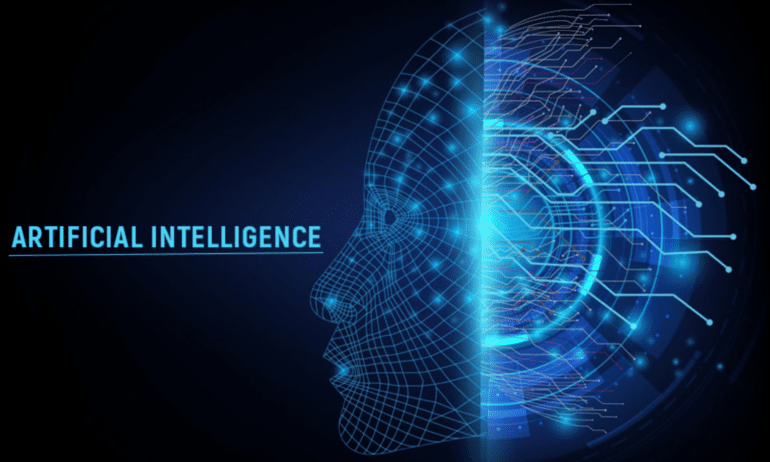TL;DR:
- Oxford, Cambridge, and Merriam-Webster feature AI-related terms in their “word of the year” lists.
- AI has led to the redefinition of existing words to reflect the technology’s influence.
- Cambridge highlights “hallucinate,” shedding light on AI’s tendency to fabricate information.
- Merriam-Webster chooses “authentic” to underscore the blurred line between real and fake in the AI era.
- “Deepfake” enters the mainstream lexicon, transitioning from a niche term.
- Oxford features “prompt,” reflecting the evolving relationship between humans and AI.
- The business implications include the need for clarity in communication amid AI-driven linguistic shifts.
Main AI News:
The tech world in 2023 has been undeniably ruled by the dominance of artificial intelligence (AI). This technological revolution has not gone unnoticed, as Oxford, Cambridge, and Merriam-Webster have all featured AI-related terms in their “word of the year” lists. Interestingly, these highlighted words are not entirely new but have been redefined and adapted to reflect the AI era, raising intriguing questions about the evolving landscape of technology and language.
Cambridge has chosen the word “hallucinate” as its word of the year, shedding light on the peculiar tendency of generative AI models like ChatGPT. These systems often resort to inventing information, from fictitious dates to entirely fabricated individuals, rather than acknowledging their lack of knowledge. The irony lies in the fact that these AI systems don’t possess an understanding of their ignorance, as their knowledge base remains devoid of actual information.
These word prediction models primarily focus on generating sentences that mirror their training data, leading them to conjure up seemingly plausible but entirely fabricated content. For instance, if asked about famous 18th-century German surgeons and lacking precise data, they conjure up names like “Arman Verdigger of the Einschloss Research Hospital in Tulingen.” This phenomenon underscores the challenges of distinguishing AI-generated content from real information.
Nevertheless, these AI-generated hallucinations have found productive applications, particularly in the realms of generative imagery and audio. AI’s ability to “hallucinate” content by blending various data sources, though not an exact replica, has led to the proliferation of AI-generated art and photos across multiple domains.
Cambridge AI ethicist Henry Shevlin emphasizes that the acceptance of such terminology reflects our readiness to attribute human-like qualities to AI, a trend that is expected to persist and evolve throughout the decade.
On the other hand, Merriam-Webster’s word of the year, “authentic,” highlights the increasingly blurred line between reality and deception in the age of artificial intelligence. The rise of AI has impacted deepfake videos, actors’ contracts, academic integrity, and various other domains, making it difficult to discern what is genuine and what is fake.
While “authentic” hasn’t received a new definition, it has acquired a significant connotation. In modern consumerism, authenticity remains an intangible quality that cannot be bought or sold, making it an incredibly valuable and marketable trait. We’ve shifted from questioning whether trends or products align with authentic choices to wondering if they are genuine in the first place, such as the Pope’s extravagant Balenciaga puffer.
The term “deepfake” has also made its way into Merriam-Webster’s lexicon, transitioning from a niche term associated with revenge porn to a widely recognized term for generative AI. The evolution of language often includes terms with less-than-respectable origins, reflecting the dynamic nature of language and its responsiveness to societal shifts.
Oxford, while not selecting an AI-related term as its word of the year, did feature “prompt” as a runner-up. This versatile word has gained a new definition related to the human aspect of generative AI. When instructing an AI system to generate a list of article ideas based on current weather conditions, the instruction itself is referred to as the “prompt.” This transformation of “prompt” into a verb underscores the evolving relationship between humans and AI.
These linguistic adaptations of familiar words raise intriguing questions about empowerment and dilution, leaving us to ponder who or what is prompting whom in this AI-driven linguistic landscape.
As for Oxford’s official word of the year, it’s “rizz,” a playful abbreviation for “charisma” and a quality that AI arguably lacks entirely, much like Tom Holland. While AI terminology infiltrates our language, it’s worth noting that some of the cooler terms, such as “latent space,” have yet to gain widespread acceptance. In a rapidly evolving technological landscape, established terminology seems to provide a stable foundation, though we eagerly await future words of the year as dictionary teams explore the potential inclusion of terms like “vectors” and “embeddings.”
Conclusion:
The incorporation of AI-related terminology into the lexicon by renowned dictionaries highlights the profound impact of artificial intelligence on language and communication. As businesses navigate this evolving landscape, ensuring clarity and authenticity in their messaging becomes imperative. The blurred line between reality and deception, as indicated by the selection of “authentic” as Merriam-Webster’s word of the year, underscores the need for businesses to establish and maintain trust with their audiences in an AI-dominated world.

